Palmer amaranth emergence is very rapid now. This is about a month early for Palmer emergence to be at this pace in Tennessee. With the spread of dicamba resistance in our Palmer amaranth population Liberty is our last best hope to control dicamba-resistant pigweed escapes in cotton and soybean. This is just a quick reminder that the time of day that Liberty is applied has a large determination on the success or failure of that application. Continue reading
Recent Updates
Early Season Thrips Considerations in Cotton
With warm conditions moving into West TN, many producers are underway with cotton planting. Below are a few things to consider with regards to thrips control.
ThryvOn: ThryvOn is Bayer’s Bt technology that has activity on thrips and plant bugs. ThryvOn cotton varieties are very effective against thrips and it is not anticipated that any fields will need foliar treatments. ThryvOn will still have thrips present (adults and immatures) but insecticide applications should not be triggered on thrips numbers but damage level (Fig 1.). Applications should be initiated when plant damage is approaching 3 in figure 1. That being said, I’ve evaluated ThryvOn varieties for several years under excellent and terrible growing conditions and I as well as my colleagues across the cotton belt, have never recommended a foliar spray for thrips.
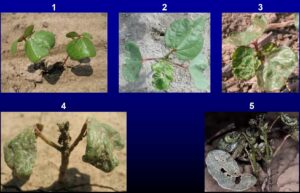
Insecticide Seed Treatments (ISTs): ISTs are the predominate control method for thrips in cotton. IST performance can be highly variable depending on weather conditions and thrips pressure. High thrips pressure and poor growing conditions will often necessitate the use of foliar sprays even with ISTs. Seed treatment packages typically come in a base (storage rate of imidacloprid + fungicide) and field rates of imidacloprid (these have several names) + fungicides, others may have nematicides, biologicals etc. Base treated seed may as well have no insecticide, the small stored product rate will offer almost no control of insects in the field. Standard options of imidacloprid (0.375 mg ai/seed) are the minimum needed for insect control in field cotton.
In-furrow: In-furrow liquid applications of imidacloprid are more effective than seed treatments; however, resistance development to neonicotinoids are diminishing the efficacy of imidacloprid in-furrow. Fields with in-furrow imidacloprid may still require a foliar spray under heavy thrips pressure. Granular AgLogic (aldicarb 15G) is highly effective against thrips populations and works like aldicarb should.
Foliar Spray Options: My recommendations are going to be limited for foliar sprays. Based on ongoing tobacco thrips resistance monitoring, to organophosphates (OPs), started by Scott Stewart several years ago, I am hesitant to recommend Orthene or Bidrin for thrips sprays. Resistance levels, in assayed populations from West TN, and the number of complaint calls I received last year are a good indication that OPs have limited use against our tobacco thrips populations. There may be areas where OP’s worked last year but it’s hard to say if they will work this year. That being said, Intrepid Edge at 3.0 fl oz/a is my go to for foliar thrips control. Although more expensive than the OPs, Intrepid Edge runs no risk of flaring mites or aphids and a surfactant has shown to increase efficacy (herbicide surfactants will work if you’re co-applying). Recolonization vs failure is another subject with foliar sprays. Presence of adults doesn’t mean the application didn’t work, adult thrips are always present on seedling cotton. Presence of immature thrips means adults are feeding and laying eggs and whatever control method you used is broken.
I am big believer in NCSU’s thrips predictor model https://products.climate.ncsu.edu/ag/cottontip/. We utilize the model to target planting when thrips numbers are highest, growers would do the opposite. Model runs for locations around West TN show that cotton planted May 1st through the 15th have a low to medium probability of experiencing large thrips populations. This is hopefully a welcome relief from years of cold, wet springs with large thrips populations plaguing our cotton. The warm weather will help germinate cotton quicker and standard ISTs may be enough to push us to the 4 true leaf stage (when thrips are typically no longer a concern) without a foliar spray.
Think Twice Before Cutting PRE-Applied Herbicides
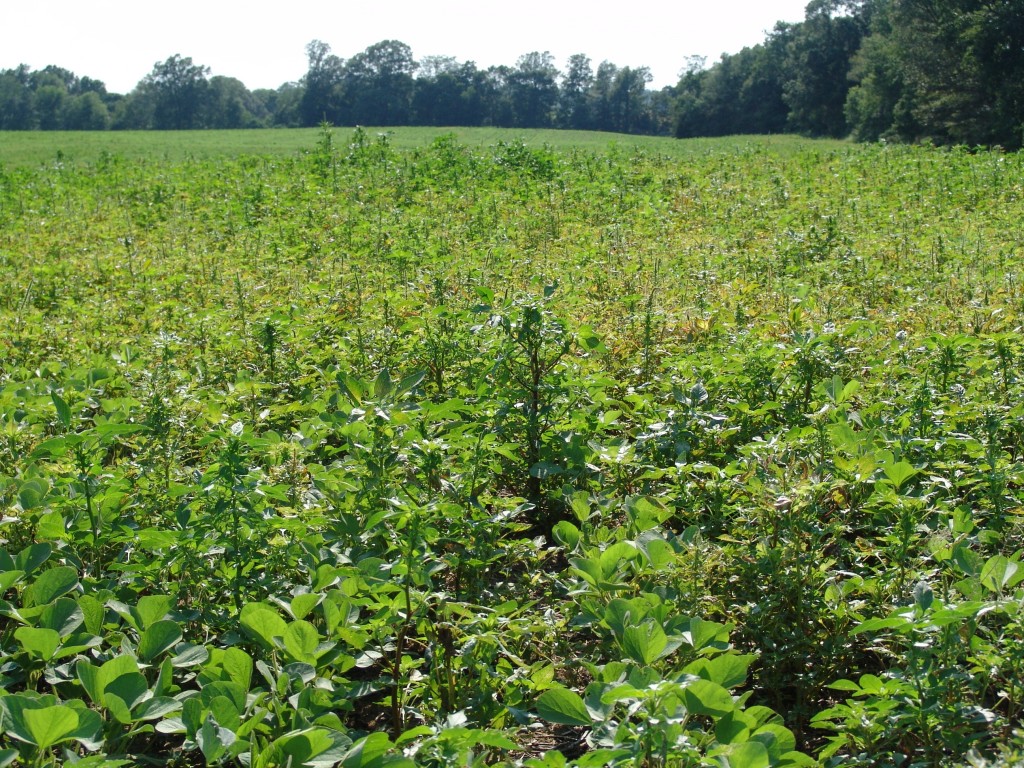
It is apparent from numerous calls that many growers this spring are planning to cut rates on PRE-applied herbicides in soybean and cotton. I can understand the mindset with the depressed commodity prices, however I fear it may be the catalyst for Palmer amaranth history to repeat itself. Continue reading
Glyphosate-Resistant Johnsongrass Management
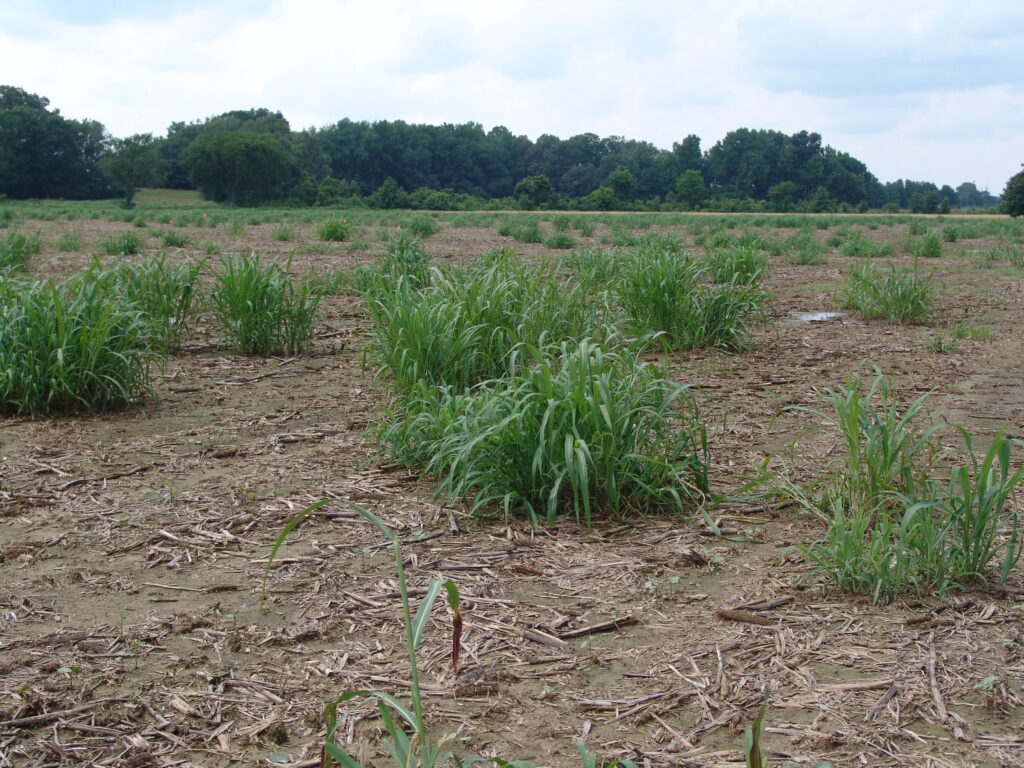
Large patches of Johnsongrass that have gotten through glyphosate burndown are now very prevalent in many fields. This is particularly noticeable in several southeastern counties of West Tennessee where some of the Johnsongrass has shaken off burndown and now is almost waist high in some cases. The main threat with Johnsongrass is in corn where there are few POST applied options. Continue reading
Wheat Disease Update – Know Your Risk for Scab
Most wheat in Tennessee is in the flowering period, the highest period for susceptibility to scab/FHB infection. There are multiple factors that can contribute to a field’s Scab/FHB risk.
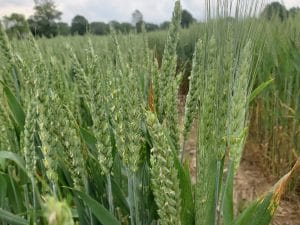
Cutworms in Seedling Corn
I’ve received a few calls in the past couple days on cutworms appearing in seedling corn. Below are some take home points on cutworms:
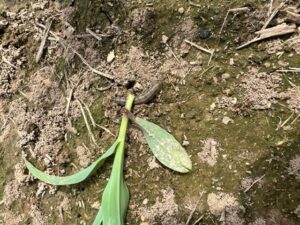
- You probably do not need to worry about cutworms if you have kept a weed free seed bed for 2-3 weeks prior to planting, and this is especially true if using some of the Bt corn technologies (see below). However, the weather this year has not generally allowed for burndown applications made 3-4 weeks before planting.
- Consider making an insecticide application near planting time. Relatively low rates of pyrethroid insecticides are typically effective for cutworm control. I do not recommend including an insecticide with herbicide applications that are made more than a couple weeks in advance of planting. Tank mixing an insecticide with an early burndown application may not be that effective. Cutworms you kill would have probably ‘cycled out’ before you planted. And because you cannot expect much residual control, there is the possibility of re-infestation between application and planting. The best time to make this application is within a few days before or after planting.
- Using Capture LFR or other in-furrow pyrethroid insecticide as an in-furrow spray can add some protection against insect pests not completely controlled by seed treatments (e.g., cutworms and sugarcane beetles). I would prefer a T-banded type application where some of the product is applied to the “shoulders” of the seed furrow. This should improve control of cutworms compared with an application where 100% of the product is applied in-furrow. However, in-furrow applications appear to provide adequate control of cutworms in most circumstances.
- No insecticide seed treatments should be expected to provide substantial control of cutworms. However, I have seen Poncho 1250 kill small cutworms in the past, don’t bet the farm on this though. Some Pioneer corn seed now includes a base treatment of Lumivia (chlorantraniliprole). This product should provide at least some control cutworm, but data is limited.
- Although Bt corn and cotton traits provide some protection against cutworms, planting into fields that are heavily infested can be risky. Bt corn traits such as Leptra, VT2 Pro, SmartStax, Viptera, ad nTrecepta corn can reduce cutworm injury. Vip corn (Leptra, Trecepta, Viptera) will provide the best protection from a Bt stand point. However, large larvae are much less susceptible to Bt toxins.
Estimating Sidedress N for Corn Fields with Poultry Litter Application
By Nutifafa Adotey, Assistant Professor & Soil and Nutr. Magt Specialist, Forbes R Walker, Professor & Envt. Soil Specialist, and Frank Yin, Professor & Cropping System Scientist, University of Tennessee
Poultry litter has become readily available to producers in Tennessee. However, poultry litter cannot supply all the nitrogen needed for corn and thus supplemental N is required to obtain optimal yield. The amount of supplemental N can be estimated using the Pre-Sidedress Nitrate Test. The Pre-Sidedress Nitrate Test is recommended only for corn producers using animal manure, poultry litter or biosolids, who want to estimate and fine-tune their sidedress N fertilizer applications following manure/poultry litter application. This article provides a guide for Tennessee corn producers using poultry litter on how to estimate sidedress N rate using the Pre-Sidedress Nitrate Test. Continue reading
Ryegrass Weed Control in April
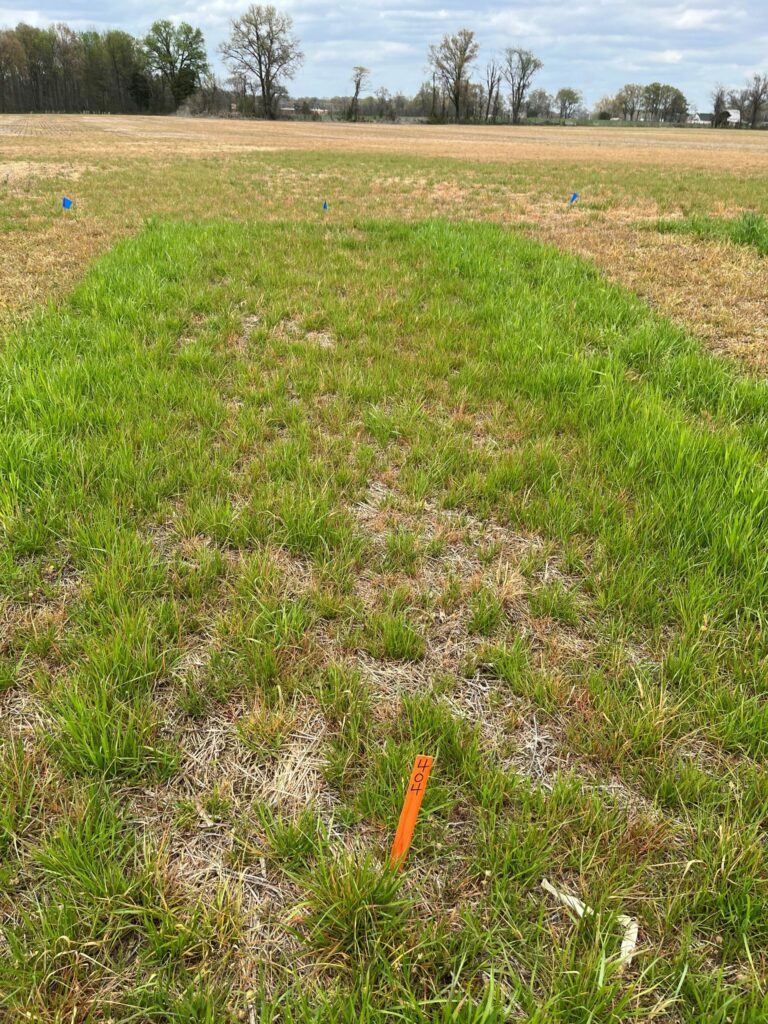
A good many reports from the field reflect what our research this spring has shown. In short, clethodim is the herbicide of choice to control ryegrass. Often clethodim tankmixed with glyphosate can improve the probability of better overall control. Ryegrass control with glyphosate alone is much more hit and miss both in our research and in many fields this year (Picture 1). Continue reading

